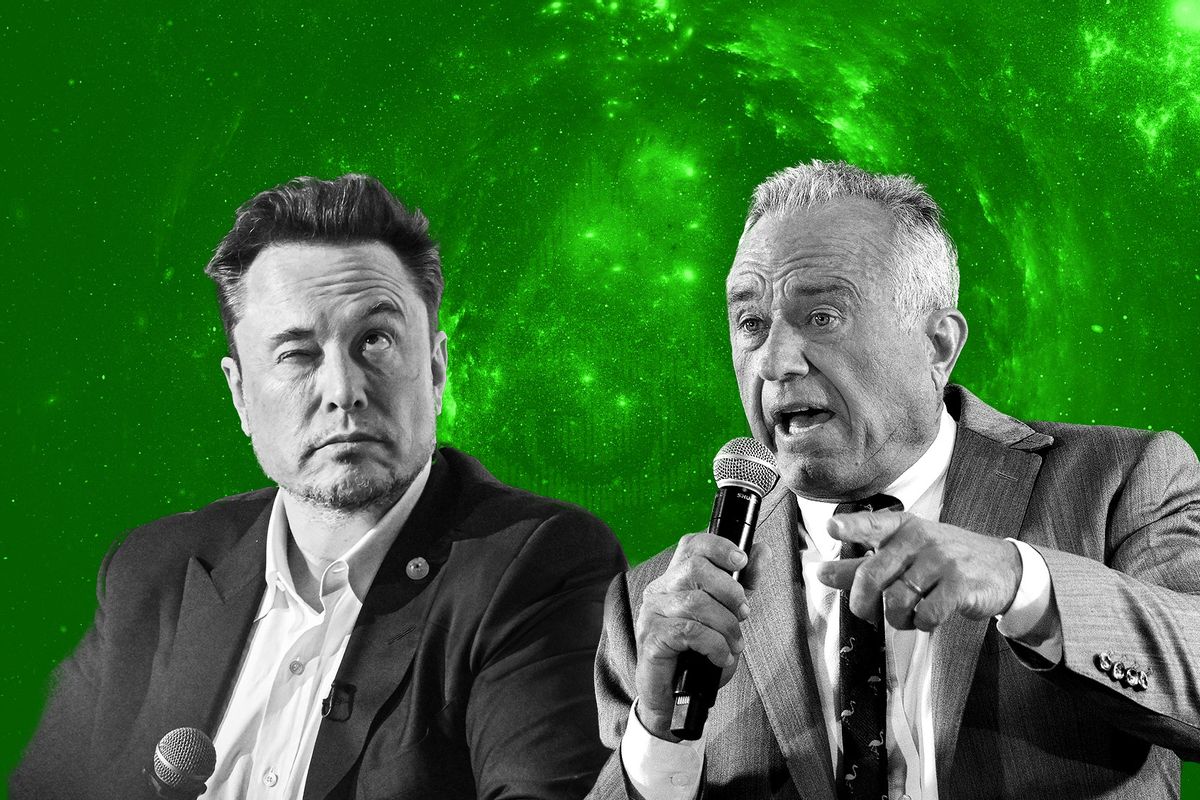Who believes the most "taboo" conspiracy theories? It might not be who you think

🌈 Abstract
The article discusses the findings of a study by Saverio Roscigno, a PhD candidate at the University of California, Irvine, on the relationship between conspiracy beliefs and demographic factors. The key findings include:
- A cluster of graduate-degree-holding white men who display a penchant for conspiracy beliefs that are "distinctively taboo", such as the belief that school shootings are false flag attacks and the number of Jews killed in the Holocaust has been exaggerated.
- Similar patterns were found for medical-themed conspiracy beliefs among African-Americans and the less educated.
- The article explores potential explanations for these findings, including access to information, perception of threat, and the transgressive nature of holding such beliefs.
- The article also discusses the need for more qualitative research to better understand the nuances of conspiracy beliefs within different demographic groups.
🙋 Q&A
[01] The Status Foundations of Conspiracy Beliefs
1. What were the key findings of Roscigno's study regarding the relationship between conspiracy beliefs and demographic factors?
- The study found a cluster of graduate-degree-holding white men who are more favorable towards "taboo" conspiracy claims, such as the belief that school shootings are false-flag attacks and the number of Jews killed in the Holocaust has been exaggerated.
- The study also found a concentration of medical-themed conspiracy beliefs among African-Americans and the less educated.
2. What are some potential explanations Roscigno provides for the finding about graduate-degree-holding white men?
- Roscigno suggests this group may perceive social changes and threats to their status, fueling their attitudes towards these conspiracy beliefs.
- He also proposes that this group may have greater access to information about these "taboo" conspiracy claims, potentially through online channels and social networks.
- Roscigno speculates that for this group, holding these beliefs may be a "transgressive act" that demonstrates their "special access to stigmatized knowledge."
3. How does Roscigno suggest survey research could be improved to better understand the nature of these conspiracy beliefs?
- Roscigno suggests surveys could ask whether respondents have communicated these beliefs to others or if the beliefs are deeply held and help them make sense of other things.
- He notes that surveys alone may not be able to fully capture whether people truly believe these conspiracy theories, and that qualitative research engaging with the communities directly would be valuable.
4. What are Roscigno's thoughts on the role of "taboo" versus unpopular beliefs in driving the patterns observed among graduate-degree-holding white men?
- Roscigno believes the key factor is the "taboo" nature of certain conspiracy claims, rather than a general preference for unpopular beliefs. He suggests testing this by looking at beliefs that are unpopular but not particularly taboo.
[02] Expanding the Scope of Conspiracy Research
1. What are Roscigno's thoughts on the need to expand the range of conspiracy beliefs studied beyond the typical prompts?
- Roscigno argues the universe of possible conspiracy claims is much larger than what is typically studied. He suggests looking at a wider variety of prompts, including institutionally verified conspiracies like Watergate or the Tuskegee experiment.
- He also points to examples like the conspiracy theory about Taylor Swift being secretly gay, which may reveal different demographic patterns in belief.
2. How does Roscigno see the concept of "collective identity" as relevant to understanding conspiracy cultures?
- Roscigno suggests collective identity operates at multiple levels within conspiracy cultures, from the excitement of possessing "secret information" to a general sense of being screwed over by elites, to more overt claims about in-groups and out-groups.
- He believes studying the nuances of identity within these communities through qualitative research could yield valuable insights.
3. What does Roscigno see as the key next steps for research on conspiracy beliefs?
- Roscigno emphasizes the need for more qualitative research that directly engages with conspiracy communities, rather than studying them from a distance. He believes this could help address the resentment some in these communities feel towards academic experts.
- He is also interested in better understanding how and why conspiracy beliefs matter, rather than just who holds them.